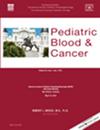Factors Associated With Electrocardiographic Abnormalities in Patients With Sickle Cell Disease: A Systematic Review and Meta-Analysis
Abstract
Introduction
Sickle cell disease (SCD) is frequently associated with cardiovascular complications, with cardiac involvement being evident in the electrocardiogram (ECG). This study aimed to systematically research the literature to investigate factors associated with ECG abnormalities in SCD patients.
Method
Five online databases of PubMed, Scopus, Web of Science, Embase, and Google Scholar were reviewed using a broad search strategy to identify original studies reporting factors associated with abnormal ECG findings among patients with SCD. Using Comprehensive Meta-Analysis software, various effect sizes—odds ratios (ORs), mean differences, and correlation coefficients—were analyzed, pooled with a random effects model, and visualized through forest plots.
Results
Data analysis from 23 studies covering 2943 SCD patients revealed increased odds of prolonged QTc interval (2.54, 95% CI = 1.34–4.83), ST segment elevation (9.23, 95% CI = 3.15–27.07), and ST segment depression (3.82, 95% CI = 1.99–7.33) during crises. Patients with moderate SCD severity had higher odds of having any ECG abnormalities compared to those with mild severity (2.80, 95% CI = 1.47–5.33). No significant associations were observed between moderate and mild severity for left ventricular hypertrophy, sinus arrhythmia, and sinus tachycardia, or between male and female for having any ECG abnormalities, left ventricular hypertrophy, and prolonged QTc interval. Additionally, mean hemoglobin level was 0.60 mg/dL lower (95% CI = −0.91 to 0.28) in those with prolonged QTc interval.
Conclusion
This study highlights the link between SCD status and severity, and hemoglobin, and ECG abnormalities. It emphasizes the need for cardiac monitoring, caution with QTc-prolonging medications, and routine ECG assessments to prevent cardiovascular complications in these high-risk patients.

 求助内容:
求助内容: 应助结果提醒方式:
应助结果提醒方式:


